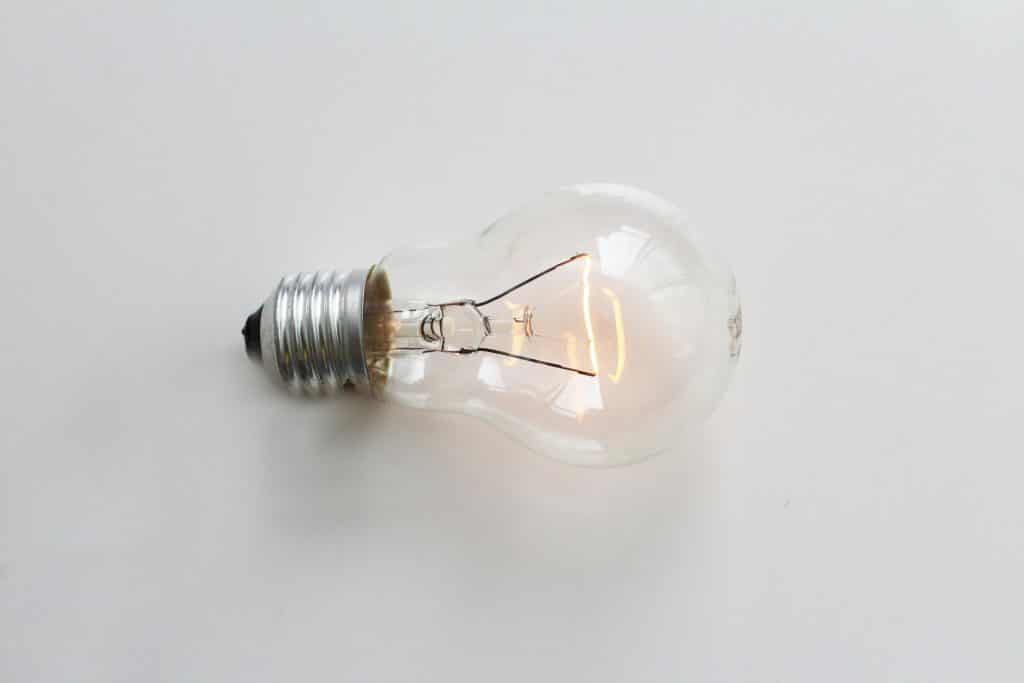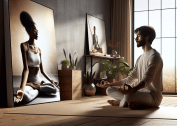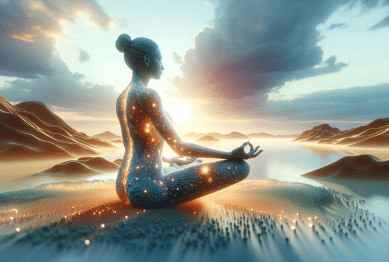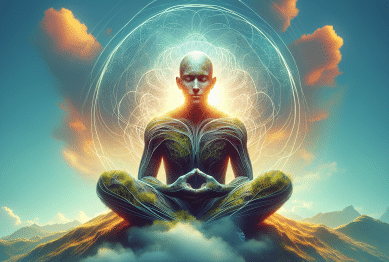In a culture of constant consumption and digital noise, mental overload has become a modern epidemic. It’s not just clutter in your home that affects your mind, but clutter in your life—in commitments, choices, and belongings. That’s why the power of simple living reduces mental overload, offering a surprising path to clarity, calm, and well-being.
This emerging trend—inspiring million-seller books, minimalism movements, and social media communities—reveals that simplifying routines, possessions, and consumption habits can reduce stress, sharpen focus, and restore mental bandwidth. In this article, we explore the science and cultural momentum behind simple living, and provide a practical guide to adopting a simpler lifestyle that strengthens mental health and daily function.

The Science: How Simplicity Eases Mental Load
● Decluttering and Cognitive Clarity
Clutter acts as visual noise, increasing cognitive load and impairing working memory. When your environment is overloaded, your brain has fewer available “slots” for important tasks. A tidy space equals mental breathing room and improved decision-making.
● Reducing Consumption Reduces Stress
The TikTok trend called “Underconsumption Core” encourages buying only what’s necessary, extending the lifespan of items, and resisting impulse buying. Users report lower stress, fewer distractions, and improved well-being.
● Minimalist Living and Emotional Wellness
Minimalism isn’t just about fewer things; it’s a mindset that promotes intentionality, clarity, and calm. Multiple studies show that simplifying commitments and possessions lowers cortisol levels, improves sleep, and enhances emotional resilience .
● Slow Living and Mindful Routines
The slow living movement encourages deliberate consumption, mindfulness, and fewer commitments. Practicing slow living fosters stronger relationships, creativity, and reduced mental strain by aligning life with core values.
Emerging Trend: Why Simple Living Is Accelerating in 2025
1. The Mental Load Crisis
Research into the mental load—especially among working caregivers—shows that emotional and cognitive overload contributes to anxiety, burnout, and lower quality of life. Simplifying responsibilities and consumption patterns helps lighten that load .
2. Pandemic-Era Reassessments
Recent surveys show people reevaluating consumer habits and computing pressure during the pandemic. Many shifted toward minimalism or intentional simplicity, noticing reduced anxiety and improved mental clarity.
3. Virtual Nature Enhancing Calm
Even virtual nature experiences have been shown to reduce anxiety and mental fatigue. When access to real nature isn’t possible, simple visual breaks can still restore mental energy .
How Simple Living Reduces Mental Overload: Practical Strategies
1: Declutter Your Physical Space
- Choose one area (like your desk or bedroom) and remove non-essential items.
- Use a method like the “30‑day minimalist game,” eliminating one extra item on day one up to 30 items on day 30 .
- Maintain what you’ve decluttered by avoiding impulse buys and adopting minimalist rules of thumb.
2: Limit Digital Overload
- Unsubscribe from unnecessary newsletters, mute non-essential notifications, and declutter your phone home screen.
- Consider scheduled tech breaks or minimalist digital tools that support focus.
Step 3: Trim Commitments and Commit to Slow Living
- Review recurring commitments—social, professional, or digital. Are they meaningful?
- Embrace slow living by aligning activities with values: leisure, cooking from scratch, walking, or intentional hobbies.
4: Adopt Underconsumption Principles
- Before buying something: pause, reflect on need versus desire, and consider repurposing.
- Purchase quality over quantity. Extend lifespan of what you already own.
- Benefit: more space, mental control, and reduced decision anxiety .
5: Craft Mindful Routines
- Begin each day with a simple ritual (e.g. making your bed). This anchors clarity and sets a calm tone
- Evening routines: dim lights, reduce sensory input, and allow mental unwind.
6: Schedule Mental Breaks with Nature
- Stepping outside—even briefly—restores attention and reduces stress. Studies highlight nature’s effect on focus and well-being .
- If outdoor access is limited, even a virtual nature clip can help reset the mind .
Benefits You’ll Notice from Simple Living
Lower Stress and Anxiety
- Reducing clutter and commitments calms the nervous system. A minimalist environment lowers cortisol levels and supports emotional regulation.
Improved Cognitive Function
- Fewer distractions allow your brain to conserve working memory and sustain attention, improving decision-making and creativity.
More Time and Emotional Bandwidth
- With fewer possessions and commitments, you reclaim time for rest, reflection, and meaningful relationships.
Stronger Focus and Purpose
- When distractions shrink, clarity grows. A simplified routine helps you align actions with values rather than distractions.
Overcoming Common Challenges
- Holding on to “just in case” items: Focus on value now, not hypothetical future use.
- Fear of missing out: Underconsumption mindset shifts your brain’s reward system toward satisfaction in intentional choice, not impulse.
- Social or cultural pressure to consume: Opt out of comparison. Minimalism is about alignment, not deprivation.
Conclusion
As research and social trends reveal, the power of simple living reduces mental overload in powerful, tangible ways. From decluttered spaces to mindful consumption, simple living frees cognitive resources, lowers stress, and promotes mental balance. It isn’t about austerity—it’s about intentional living.
If your mind feels crowded or overwhelmed, start with small steps: declutter one room, delete one app, say no to one commitment, take a walk. Over time, simplicity compounds. You’ll gain focus, energy, and clarity to live more with less noise—and greater peace.
References
- Nuvance Health. How clutter affects your brain health https://www.nuvancehealth.org/health-tips-and-news/how-clutter-affects-your-brain-health?utm_source=chatgpt.com
- RealSimple on TikTok underconsumption trend. https://www.realsimple.com/tiktok-underconsumption-core-trend-8686942?utm_source=chatgpt.com
- Homes & Gardens. Minimalism resets your brain. https://www.homesandgardens.com/solved/beneficial-ways-minimalism-resets-brain?utm_source=chatgpt.com










 Quiet Moments Are Essential for Deep Work
Quiet Moments Are Essential for Deep Work 

